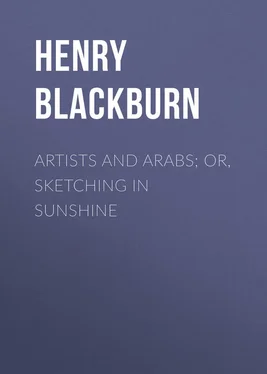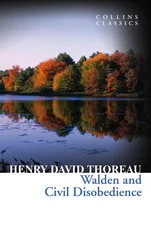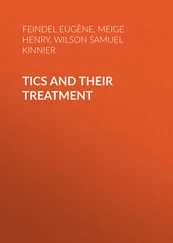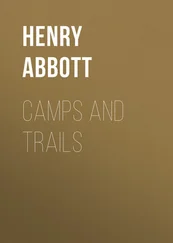Henry Blackburn - Artists and Arabs; Or, Sketching in Sunshine
Здесь есть возможность читать онлайн «Henry Blackburn - Artists and Arabs; Or, Sketching in Sunshine» — ознакомительный отрывок электронной книги совершенно бесплатно, а после прочтения отрывка купить полную версию. В некоторых случаях можно слушать аудио, скачать через торрент в формате fb2 и присутствует краткое содержание. Жанр: foreign_antique, foreign_prose, на английском языке. Описание произведения, (предисловие) а так же отзывы посетителей доступны на портале библиотеки ЛибКат.
- Название:Artists and Arabs; Or, Sketching in Sunshine
- Автор:
- Жанр:
- Год:неизвестен
- ISBN:нет данных
- Рейтинг книги:3 / 5. Голосов: 1
-
Избранное:Добавить в избранное
- Отзывы:
-
Ваша оценка:
- 60
- 1
- 2
- 3
- 4
- 5
Artists and Arabs; Or, Sketching in Sunshine: краткое содержание, описание и аннотация
Предлагаем к чтению аннотацию, описание, краткое содержание или предисловие (зависит от того, что написал сам автор книги «Artists and Arabs; Or, Sketching in Sunshine»). Если вы не нашли необходимую информацию о книге — напишите в комментариях, мы постараемся отыскать её.
Artists and Arabs; Or, Sketching in Sunshine — читать онлайн ознакомительный отрывок
Ниже представлен текст книги, разбитый по страницам. Система сохранения места последней прочитанной страницы, позволяет с удобством читать онлайн бесплатно книгу «Artists and Arabs; Or, Sketching in Sunshine», без необходимости каждый раз заново искать на чём Вы остановились. Поставьте закладку, и сможете в любой момент перейти на страницу, на которой закончили чтение.
Интервал:
Закладка:
Before we proceed further, let us glance at the general mode of living in Algiers, speaking first of the traveller who goes to the hotels.
The ordinary visitor of a month or two will drop down pleasantly enough into the system of hotel life in Algiers; and even if staying for the winter he will probably find it more convenient and amusing to take his meals in French fashion at the hotels, ringing the changes between three or four of the best, and one or two well-known cafés, There is generally no table-d'hôte, but strangers can walk in and have breakfast or dine very comfortably at little tables ' a part ,' at a fixed hour and at a moderate price. The rooms are pleasant, cool, and airy, with large windows open to the sea.
Everything is neatly and quietly served, the menu is varied enough, with good French dishes and game in abundance; the hosts being especially liberal in providing those delicious little birds that might be larks or quails, – which in Algiers we see so often on the table and so seldom on the wing.
Half the people that are dining at the 'Hôtel d'Orient' to-day are residents or habitués; they come in and take their accustomed places as cosily, and are almost as particular and fastidious, as if they were at their club.
There is the colonel of a cavalry regiment dining alone, and within joking distance, five young officers, whose various grades of rank are almost as evident from their manner as from the number of stripes on their bright red kepis ranged on the wall of the salon. A French doctor and his wife dine vis-à-vis, at one table, a lady solitaire at another; some gentlemen, whose minds are tuned to commerce, chatter in a corner by themselves; whilst a group of newly-arrived English people in the middle of the room, are busily engaged in putting down the various questions with which they intend to bore the viceconsul on the morrow, as if he were some good-natured house-agent, valet-de-place, and interpreter in one, placed here by Providence for their especial behoof. But it is all very orderly, sociable, and comfortable, and by no means an unpleasant method of living for a time.
There is the cercle , the club, at which we may dine sometimes; there are those pretty little villas amongst the orange-trees at Mustapha Supérieure, where we may spend the most delightful evenings of all; and there are also the Governor's weekly balls, soirées at the consulate, and other pleasant devices for turning night into day, in Algiers as everywhere else – which we shall be wise if we join in but sparingly. And there are public amusements, concerts, balls, and the theatre – the latter with a company of operatic singers with weak lungs, but voices as sweet as any heard in Italy; and there are the moonlight walks by the sea, to many the greatest delight of all.
The ordinary daily occupations are decidedly social and domestic; and it may be truly said that for a stranger, until he becomes accustomed to the place, there is very little going on.
You must not bathe, for instance, on this beautiful shelving shore. 'Nobody bathes, it gives fever,' was the invariable answer to enquiries on this subject, and though it is not absolutely forbidden by the faculty, there are so many restrictions imposed upon bathers that few attempt it; moreover, an Englishman is not likely to have brought an acrobatic suit with him, nor will he easily find a 'costume de bain' in Algiers.
There is very little to do besides wander about the town, or make excursions in the environs or into the interior (in which latter case it is as well to take a fowling-piece, as there is plenty of game to be met with); and altogether we may answer a question often asked about Algiers as to its attractions for visitors, that it has not many (so called), for the mere holiday lounger.
But for those who have resources of their own, for those who have work to do which they wish to do quietly, and who breathe more freely under a bright blue sky, Algiers seems to us to be the place to come to.
The 'bird of passage,' who has unfortunately missed an earthquake, often reports that Algiers is a little dull; but even he should not find it so, for beyond the 'distractions' we have hinted at, there is plenty to amuse him if he care little for what is picturesque. There are (or were when we were there), a troop of performing Arabs of the tribe of 'Beni Zouzoug,' who performed nightly the most hideous atrocities in the name of religious rites: wounding their wretched limbs with knives, eating glass, holding burning coals in their mouths, standing on hot iron until the feet frizzled and gave forth sickening odours, and doing other things in an ecstacy of religious frenzy which we could not print, and which would scarcely be believed in if we did. 5 5 Since writing the above, we observe that these Arabs (or a band of mountebanks in their name), have been permitted to perform their horrible orgies in Paris and London, and that young ladies go in evening dress to the 'stalls' to witness them.
There are various Moorish ceremonies to be witnessed. There are the sacrifices at the time of the Ramadhan, when the negro priestesses go down to the water side and offer up beasts and birds; the victims, after prolonged agonies which crowds assemble to witness, being finally handed over to a French chef de cuisine .
There are the mosques to be entered barefoot, and the native courts of law to be seen. Then if possible, a Moor should be visited at home, and a glimpse obtained of his domestic economy, including a dinner without knives or forks.
An entertainment consisting entirely of Moorish dances and music is easily got up, and is one of the characteristic sights of Algiers. The young trained dancing girls, urged on to frenzy by the beating of the tom-tom, and falling exhausted at last into the arms of their masters; (dancing with that monotonous motion peculiar to the East, the body swaying to and fro without moving the feet); the uncouth wild airs they sing, their shrieks dying away into a sigh or moan, will not soon be forgotten, and many other scenes of a like nature, on which we must not dwell – for are they not written in twenty books on Algeria already?
But there are two sights which are seldom mentioned by other writers, which we must just allude to in passing.
The Arab races, which take place in the autumn on the French racecourse near the town, are very curious, and well worth seeing. Their peculiarity consists in about thirty Arabs starting off pell-mell, knocking each other over in their first great rush, their bournouses mingling together and flying in the wind, but arriving at the goal generally singly, and at a slow trot, in anything but racing fashion.
Another event is the annual gathering of the tribes, when representatives from the various provinces camp on the hills of the Sahel, and the European can wander from one tent to another and spend his day enjoying Arab hospitality, in sipping coffee and smoking everywhere the pipe of peace.
These things we only hint at as resources for visitors, if they are fortunate enough to be in Algiers at the right time; but there are one or two other things that they are not likely to miss, whether they wish to do so or not.
They will probably meet one day, in the 'Street of the Eastern Gate,' the Sirocco wind, and they will have to take shelter from a sudden fearful darkness and heat, a blinding choking dust, drying up as it were the very breath of life; penetrating every cavity, and into rooms closed as far as possible from the outer air. Man and beast lie down before it, and there is a sudden silence in the streets, as if they had been overwhelmed by the sea. For two or three hours this mysterious blight pours over the city, and its inhabitants hide their heads.
Читать дальшеИнтервал:
Закладка:
Похожие книги на «Artists and Arabs; Or, Sketching in Sunshine»
Представляем Вашему вниманию похожие книги на «Artists and Arabs; Or, Sketching in Sunshine» списком для выбора. Мы отобрали схожую по названию и смыслу литературу в надежде предоставить читателям больше вариантов отыскать новые, интересные, ещё непрочитанные произведения.
Обсуждение, отзывы о книге «Artists and Arabs; Or, Sketching in Sunshine» и просто собственные мнения читателей. Оставьте ваши комментарии, напишите, что Вы думаете о произведении, его смысле или главных героях. Укажите что конкретно понравилось, а что нет, и почему Вы так считаете.












